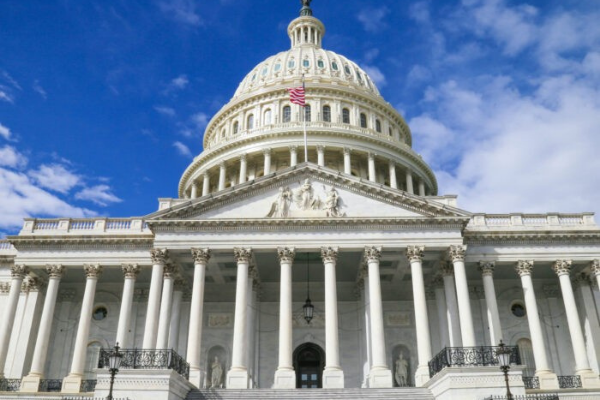
Appalling. Uncertain. Blatantly unfair. Existential threat.
These were just some of the words used to describe Medicare physician payment at a recent advocacy summit the Texas Medical Association and physician leaders from across the country convened to help fix the problem.
But those words were followed by others such as optimistic, momentum, and sustainable at the Sept. 6 virtual event, Creating Momentum on Inflation Adjustment, Patient Access, and Medicare Payment.
Hosted by the American Academy of Dermatology Association (AADA), the discussion featured several physician congressmen leading the charge on a bipartisan House bill to reform the Medicare physician payment system. The centerpiece of that legislation – the Strengthening Medicare for Patients and Providers Act, or House Resolution 2474 – is an annual inflation-based payment update based on the full Medicare Economic Index, or MEI, a measure of physician practice cost inflation.
Medicine’s main message: The Medicare physician payment system is in need of urgent and comprehensive reform to preserve physicians’ ability to provide high quality care to the nation’s seniors, and HR 2474 represents a major step toward that goal. How can we expedite its passage?
Amid rapid consolidation in health care and plunging physician payments, TMA and others in organized medicine have made reform an imperative advocacy priority, with TMA recently influencing AMA policy on the matter. Since 2001, Medicare physician payments have lagged 26% behind inflation while hospital and other health industry payments have kept pace, according to American Medical Association (AMA) data.
“I'm a pathologist in Texas, and as a hospital-based group I'm trying to remain independent and not be hired by the hospital. But we take everyone who comes through the door, whether they have Medicare or whether they are no insurance at all,” David Henkes, MD, chair of the Texas Delegation to the AMA told summit attendees.
“The hospitals get paid for uncompensated care, they get annual Medicare updates, and we have gotten none for the past 15 to 20 years,” he said, which puts practices in financial jeopardy and their patients at risk of losing access to care.
The bill was “crafted with the goal of protecting that access,” U.S. Rep. Larry Bucshon, MD (R-IN) said at the event. The cardiothoracic surgeon is the lead co-sponsor of HR 2474 and serves on the Health Subcommittee of the House Committee on Energy and Commerce. U.S. Rep. Raul Ruiz, MD (D-CA), an emergency physician and the lead sponsor, made a virtual appearance, as did co-sponsor Ami Bera, MD (D-CA), an internist.
As of this writing, Texas U.S. Reps. Henry Cuellar (D-Laredo), Lance Gooden (R-Terrell), and Pete Sessions (R-Waco) had signed on among nearly 40 cosponsors.
“This is more than just legislation. This is a promise to our seniors their access to medical care will not be compromised,” Representative Ruiz said.
Success, Representative Bucshon added, requires strong advocacy by the house of medicine to “keep this fresh in everyone’s minds.” He encouraged physicians to talk to their representatives and share personal stories, educate them on about the discrepancies in payment updates between doctors and hospitals, and encourage them to co-sponsor HR 2474.
As of this writing, a Senate companion bill had not been filed.
“This really has been a conversation-starter in the House,” Representative Bucshon said. As hearings continue, “it’s important we keep this issue as part of the conversation in any conversation on health care.”
There was no ignoring the elephant in the room when it came to discussing the biggest barrier to achieving reform: finding the money to pay for it.
“The primary objection is the cost,” he said, acknowledging that achieving reform could be a multi-session effort. “But fundamentally most people from a policy perspective understand [the current Medicare payment system] is not fair and it’s impinging on the ability of doctors’ ability to stay in practice, especially in rural and underserved communities. … [Members of Congress] are starting to understand that we’re reaching a critical inflection point with reimbursement.”
Participants discussed potential solutions to the funding conundrum, such eliminating budget neutrality requirements that mandate any pay increases and decreases be offsetting; addressing site neutrality between Parts A (hospitals) and B (physicians); and fundamentally reforming the way the Congressional Budget Office scores health care to account for savings from preventive effects.
Equally important, is for medicine to speak with one voice, AADA President Terrence A. Cronin Jr, MD, emphasized.
“When we’re united, we have strength.”
Texas physicians can add their voice by sending a ready-made message urging their representatives to support HR 2474.
“It’s the only way we are going to see movement on this legislation,” said Corey Howard, MD, Florida Medical Association.
For additional advocacy resources, check out TMA’s Medicare Toolkit and the AMA’s Fix Medicare Now campaign.